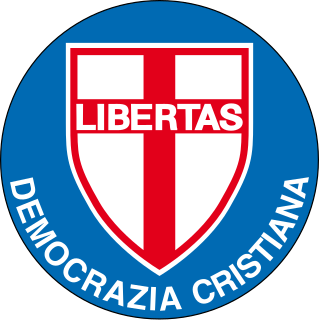This page is based on this
Wikipedia article Text is available under the
CC BY-SA 4.0 license; additional terms may apply.
Images, videos and audio are available under their respective licenses.

Belgium is a federal state with a multi-party political system, with numerous parties who factually have no chance of gaining power alone, and therefore must work with each other to form coalition governments.

Alojz "Lojze" Peterle is a Slovenian politician and Member of the European Parliament (MEP) from Slovenia. He is a member of New Slovenia, part of the European People's Party. He served as Prime Minister of Slovenia from 1990 to 1992, Leader of the Christian Democrats from the founding of the party in 1990 until it merged with the Slovenian People's Party in 2000 and Minister of Foreign Affairs from 1993 to 1994 and 2000. He was a Member of the National Assembly from 1996 to 2004.

The Union of the Democratic Centre was an electoral coalition, and later political party, in Spain, existing from 1977 to 1983. It was initially led by Adolfo Suárez.

The Sardinian Action Party is a regionalist and separatist political party in Sardinia. While being traditionally part of the Sardinian centre-left, this nationalist party has recently sided with the centre-right coalition and, more specifically, with the Lega Nord.

Elections to the Swiss Federal Assembly, the federal parliament of Switzerland, were held on Sunday, 21 October 2007. In a few cantons, a second round of the elections to the Council of States was held on 11 November, 18 November, and 25 November 2007. For the 48th legislative term of the federal parliament (2007–2011), voters in 26 cantons elected all 200 members of the National Council as well as 43 out of 46 members of the Council of States. The other three members of the Council of States for that term of service were elected at an earlier date.
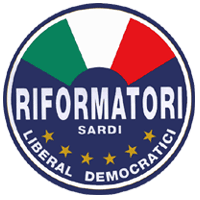
The Sardinian Reformers is a regionalist, liberal and Christian-democratic political party in Sardinia, led by Michele Cossa. The party, which has always been part of the centre-right at the Sardinian regional level, is a keen supporter of the free market, competition, globalization and a two-party system.
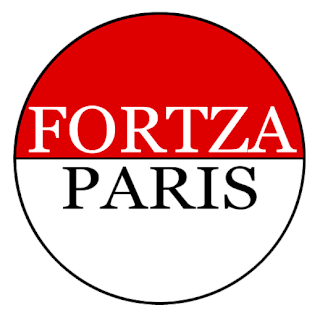
Fortza Paris is a regionalist political party in Sardinia.
The Sardinian Democratic Union – Nationalist Project is a regionalist Christian-democratic political party in Sardinia. Its leader is Mario Floris, a former Christian Democrat who was President of the Region from 1999 to 2001.
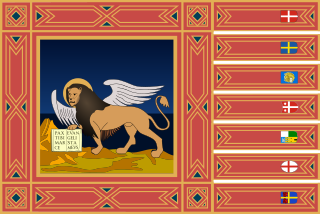
This page gathers the results of elections in Veneto.

The Venetian regional election of 1980 took place on 8 June 1980.
The Slovene Union is a centrist political party in Italy representing the Slovene minority in the Friuli-Venezia Giulia region. Its Slovenian language name means literally "Slovene Community", but the denomination "Slovene Union" is used in other languages.
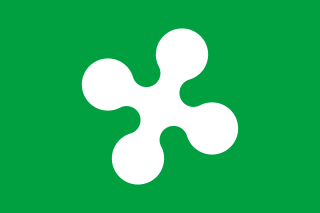
The Politics of Lombardy, Italy, takes place in a framework of a semi-presidential representative democracy, whereby the President of the Region is the head of government, and of a pluriform multi-party system. Legislative power is vested in the Regional Council of Lombardy, while executive power is exercised by the Regional Government led by the President, who is directly elected by the people. The current Statute, which regulates the functioning of the regional institutions, has been in force since 2008.

The Lombard regional election of 1980 took place on 8 June 1980. The 3rd term of the Regional Council was chosen.

The Piedmontese regional election of 1980 took place on 8 June 1980.
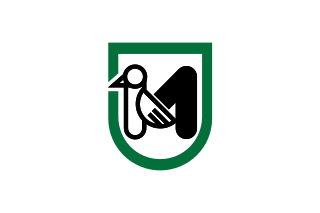
The Marche regional election of 1980 took place on 8 June 1980.
Regional elections were held in Belgium on 7 June 2009 to choose representatives in the regional parliaments of Flanders, Wallonia, Brussels and the German-speaking Community of Belgium. These elections were held on the same day as the European elections.

The Molise regional election of 1980 took place on 8 June 1980.

The Sardinian regional election of 1979 took place on 17 June 1979.

The Italian regional elections of 1980 were held on June 8. The fifteen ordinary regions, created in 1970, elected their third assemblies.
The centre-left coalition is a political alliance of political parties in Italy active, under several forms and names, since 1995 when The Olive Tree was formed under the leadership of Romano Prodi. The centre-left coalition ruled the country for more than twelve years between 1996 and 2018.

